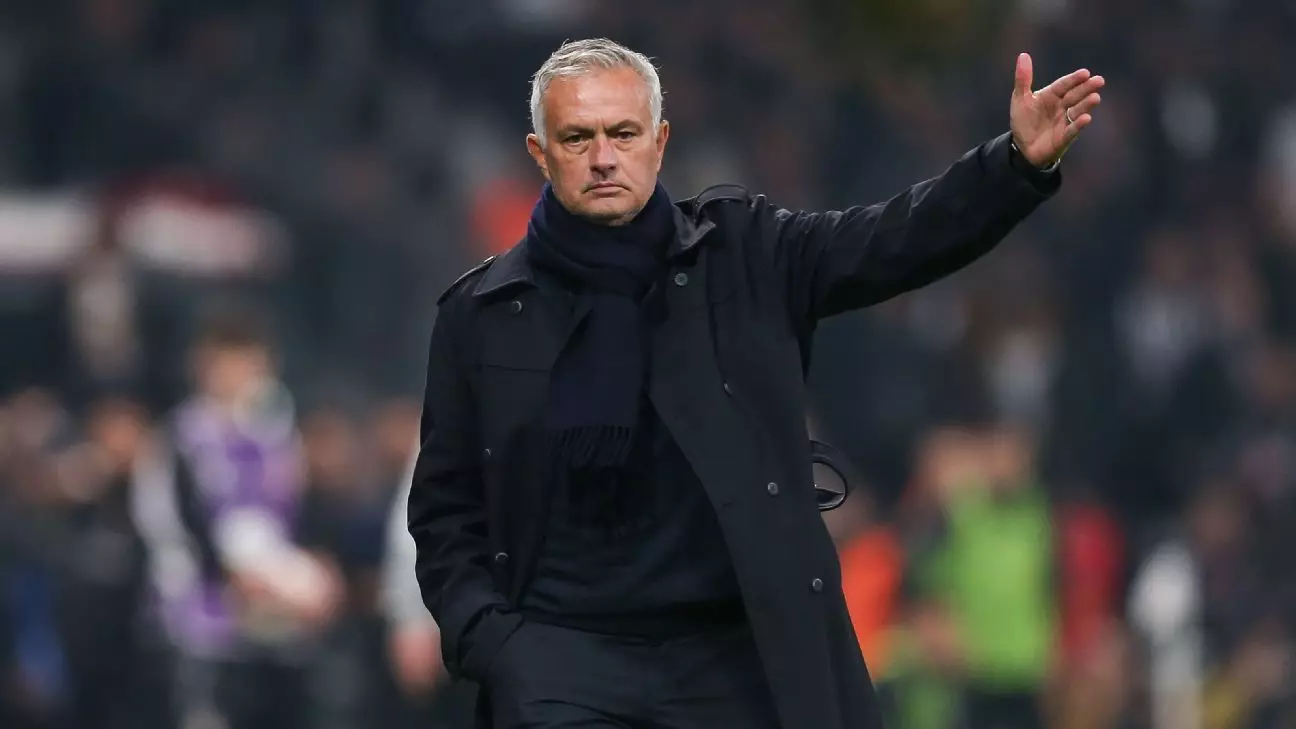In the world of football, rivalries often transcend mere competition, evolving into profound narratives that intertwine ambition, justice, and personal relationships. The ongoing tension between José Mourinho and Pep Guardiola exemplifies this, as both managers have made headlines with their recent interactions. Mourinho, currently managing Fenerbahçe, responded to Guardiola’s claims regarding Manchester City’s potential relegation with a clarion call for fairness in the sport, igniting discussions about the ethical dimensions of football management.
The crux of Mourinho’s critique lies not in a desire to see rivals falter, but in advocating for equity within the hierarchical structure of football clubs. Mourinho insisted that his intentions were misunderstood when he commented on Manchester City’s financial controversies. He stressed his wish for justice rather than singling out specific clubs for demotion. This insistence on equity, particularly in Financial Fair Play (FFP) regulations, points to a larger systemic issue within competitive sports, where financial prowess often supersedes sporting merit.
Mourinho’s statement that smaller clubs face severe repercussions for budgetary infractions, while larger clubs find ways to circumvent rules, raises essential questions about accountability in football. His challenges during his tenure at Roma serve as anecdotal evidence of the frustrations many coaches face when navigating financial constraints. By highlighting these disparities, Mourinho positions himself as a proponent of fairness rather than a mere provocateur seeking to incite his longtime rival.
In contrast, Pep Guardiola’s reaction to Mourinho’s remarks reflected a defensive posture. By alluding to a “huge list” of individuals wishing for Manchester City’s relegation, Guardiola diverted the conversation into a realm of personal attacks rather than addressing the substantive contention of financial integrity. This defensive narrative often plays into the hands of critics who perceive Guardiola as prioritizing his club’s glory above the principles that govern sport.
Guardiola’s ability to remain at Manchester City, especially after signing a new contract that extends to 2027, suggests a commitment that could noble or insular, depending on one’s perspective. His assertion that he is unlikely to coach another club further demonstrates a desire to consolidate power and visibility within the City hierarchy, qualities that can be both beneficial and detrimental. By suggesting that he may only consider managing a national team in the future, Guardiola seems to draw a distinct boundary between his current environment and potential future endeavors.
While tensions and rivalries are persistent themes in football, Mourinho’s remarks about his relationship with Guardiola reveal a deeper layer to their competitive history. Reflecting on their time together at Barcelona, Mourinho emphasized mutual respect and personal regard for Guardiola, setting the stage for a complex interplay between professional rivalry and personal admiration. By asserting there are “no problems” between the two, Mourinho attempts to temper the narrative of their contentious relationship, suggesting that competitive fervor does not necessarily translate to personal animosity.
This dynamic exemplifies how relationships in football management can be multifaceted, allowing for both rivalry and camaraderie. It underlines an essential lesson for fans and commentators alike—that behind the fervent clashes on the pitch lies a network of interpersonal connections that can defy the animosities often portrayed by the media.
As the saga of Mourinho and Guardiola continues to unfold, it encapsulates critical themes surrounding justice in football, managerial ethics, and the complexities of professional relationships. The current climate of financial scrutiny facing clubs like Manchester City demands an ongoing discussion about fairness and accountability in the sport.
For Mourinho, advocating for smaller clubs shines a light on the broader issues that affect the foundation of football fostered by both grassroots clubs and elite teams alike. On the other hand, Guardiola’s response to these issues signals an ongoing struggle between the themes of privilege and integrity. Thus, while the rivalry between Mourinho and Guardiola is emblematic of competitive spirit, it also serves as a call to reflect on the values we uphold within the incredible world of football.

